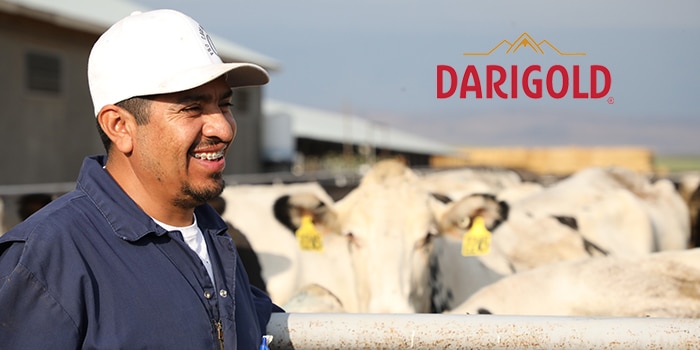Seattle-based producer Darigold, the marketing and processing arm of Northwest Dairy Association, is investing $67 million in expansions and upgrades to its Boise, Idaho facility to help support the growth of aseptic ultra-filtered milk brand FIT.
The company has been in operation for over 100 years, working as both a dairy ingredients supplier and a CPG brand. As sales of dairy milk have fallen, plant-based alternatives have soared, driven by a steady stream of innovation from brands like Califia and Elmhurst. That spirit is what’s lacking in dairy, according to Duane Naluai, Darigold senior VP of consumer products for the last three years. The range of competitors across all categories, not only in plant-based milks, has caught the fluid dairy category stagnant and flatfooted, failing to develop “consumer relevant versions” with modern appeal.
“We’ve got to innovate and create contemporary relevant products and packages that make us more competitive with macro beverages,” he said.
In response, last year Darigold launched FIT, an ultra-filtered, ultra-high temperature pasteurized milk that contains 75% more protein (14 grams per one cup serving) and 40% less sugar than conventional dairy milk. The line is lactose free and is sold in 59 oz. cartons and 14 oz. single serve PET bottles in chocolate, reduced fat (2%) and whole milk varieties. The suggested retail price for the carton is $3.79 and $1.99 for the bottle.
The ultra-filtered segment, which was pioneered by Fairlife and now includes brands like Organic Valley, has sourced over half of its incremental volume from beverages outside of fluid milk, Naluai said. Sales of Fairlife’s shelf-stable flavored milks were up 11% ($106.4 million) while the brand’s low fat milks increased 18.7% ($206.9 million), according to IRI.
The investment in Darigold’s Boise facility is aimed primarily at positioning FIT as the tip of the spear for a bigger push into shelf-stable product innovation. Going aseptic has its advantages in convenience, portability and price, but Naluai noted that it also simply gives retailers an incentive to take on new products.
“Our overall hypothesis is that longer shelf life allows us to get access to convenience stores and drug stores and more ubiquitous availability where that product doesn’t have to turn as fast as a fresh product,” he said. “It reduces the risk of innovation.”
The funds will also go towards calibrating plant operations to be more sustainable, reducing energy use and water consumption. Packaging will also receive a significant upgrade: the company will begin producing its own cartons, which will contain less than half the corrugate of its current version, and bottles with decreased plastic content. The first production run is slated for this fall.
The Boise plant represents only a piece of Darigold’s overall operations, which handles 10 billion pounds of milk each year. The company’s overarching environmental targets are consistent across the board, Naluai said, though he did not specify if any of Darigold’s 10 other facilities will receive any new investment at this time. With 430 member family dairy farms across Oregon, Washington, Montana and Idaho, there are a range of production and logistics issues to consider before scaling operations.
“What’s really important is that this is an investment in future technology for dairy that really allows us to compete even better with macro beverages,” he said.
